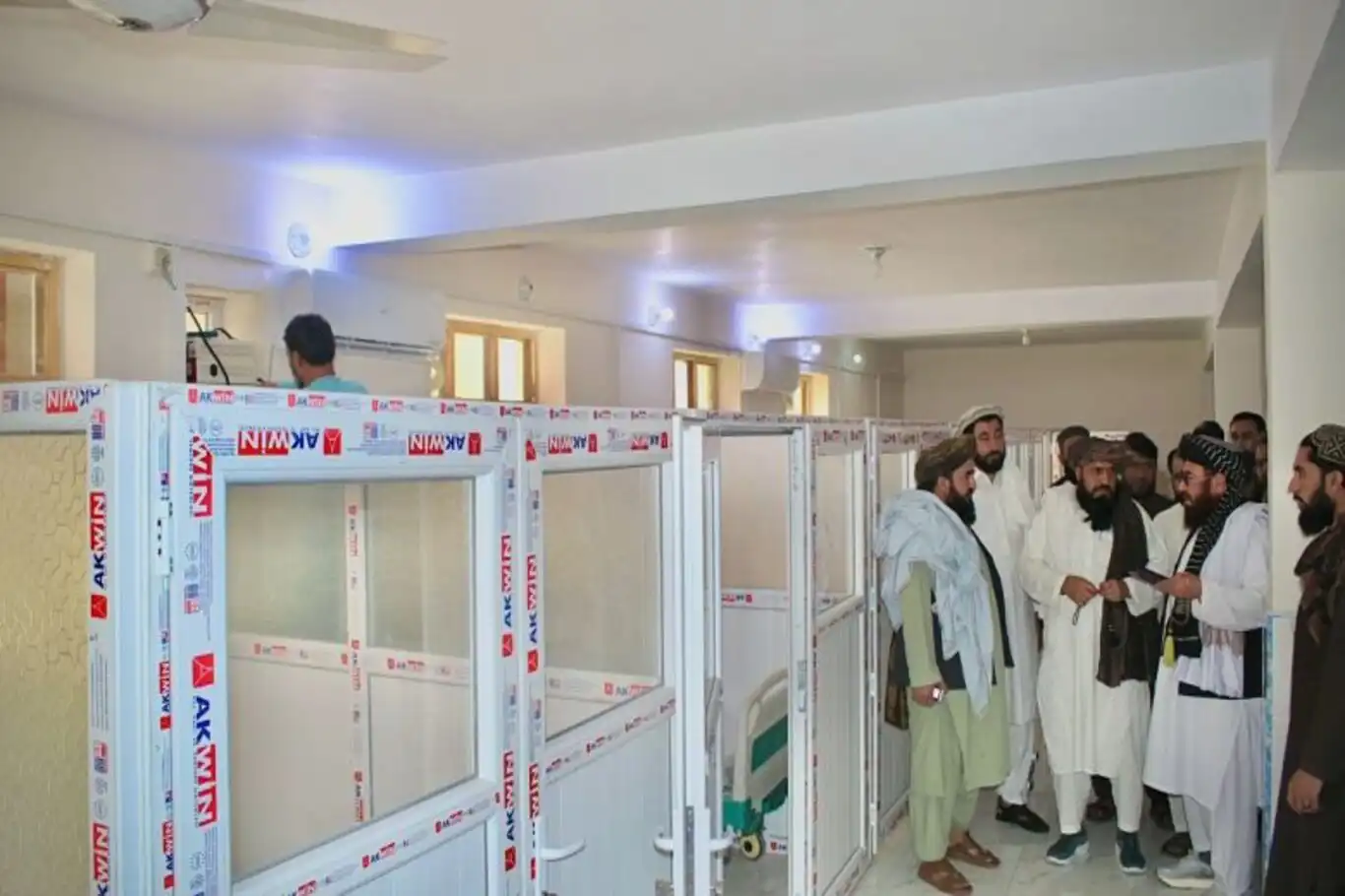50-bed temporary hospital opens in Nangarhar to treat earthquake survivors


The Ministry of Public Health has announced the establishment of a 50-bed temporary hospital in Nangarhar province to provide care for those injured in the recent devastating earthquake that struck eastern Afghanistan.
The facility, now fully operational, was inaugurated by Mawlavi Abdul Wali Haqqani, Deputy Minister of Health Services, accompanied by a technical team and Mawlavi Aminullah Sharif, Director of Public Health for Nangarhar.
The hospital has been set up to treat patients transferred from neighboring Kunar province, which bore the brunt of the earthquake’s destruction. Many victims initially received first aid and emergency stabilization in district hospitals and health centers but now require ongoing medical attention and recovery care.
Deputy Minister Haqqani emphasized that the Ministry of Public Health has ensured all essential resources are available at the new facility. He added that the hospital’s operations are fully funded by the ministry’s budget, underscoring the government’s commitment to providing continuous care for earthquake-affected communities.
The new hospital is expected to significantly ease pressure on local health facilities while ensuring that survivors receive appropriate treatment during the recovery phase. (ILKHA)
LEGAL WARNING: All rights of the published news, photos and videos are reserved by İlke Haber Ajansı Basın Yayın San. Trade A.Ş. Under no circumstances can all or part of the news, photos and videos be used without a written contract or subscription.
Health authorities in the Democratic Republic of the Congo (DRC) have declared a new outbreak of Ebola virus disease in Kasai Province, where 28 suspected cases and 15 deaths—including four health workers—have been recorded as of September 4.
The medicine, Lecanemab, marketed under the name Leqembi, was developed by US pharmaceutical company Biogen and Japan’s Eisai.
İpek Baz, Chair of the Women’s Branch of the HÜDA PAR Diyarbakır Provincial Directorate, has drawn attention to a growing crisis in women’s healthcare access in Türkiye’s southeastern region.